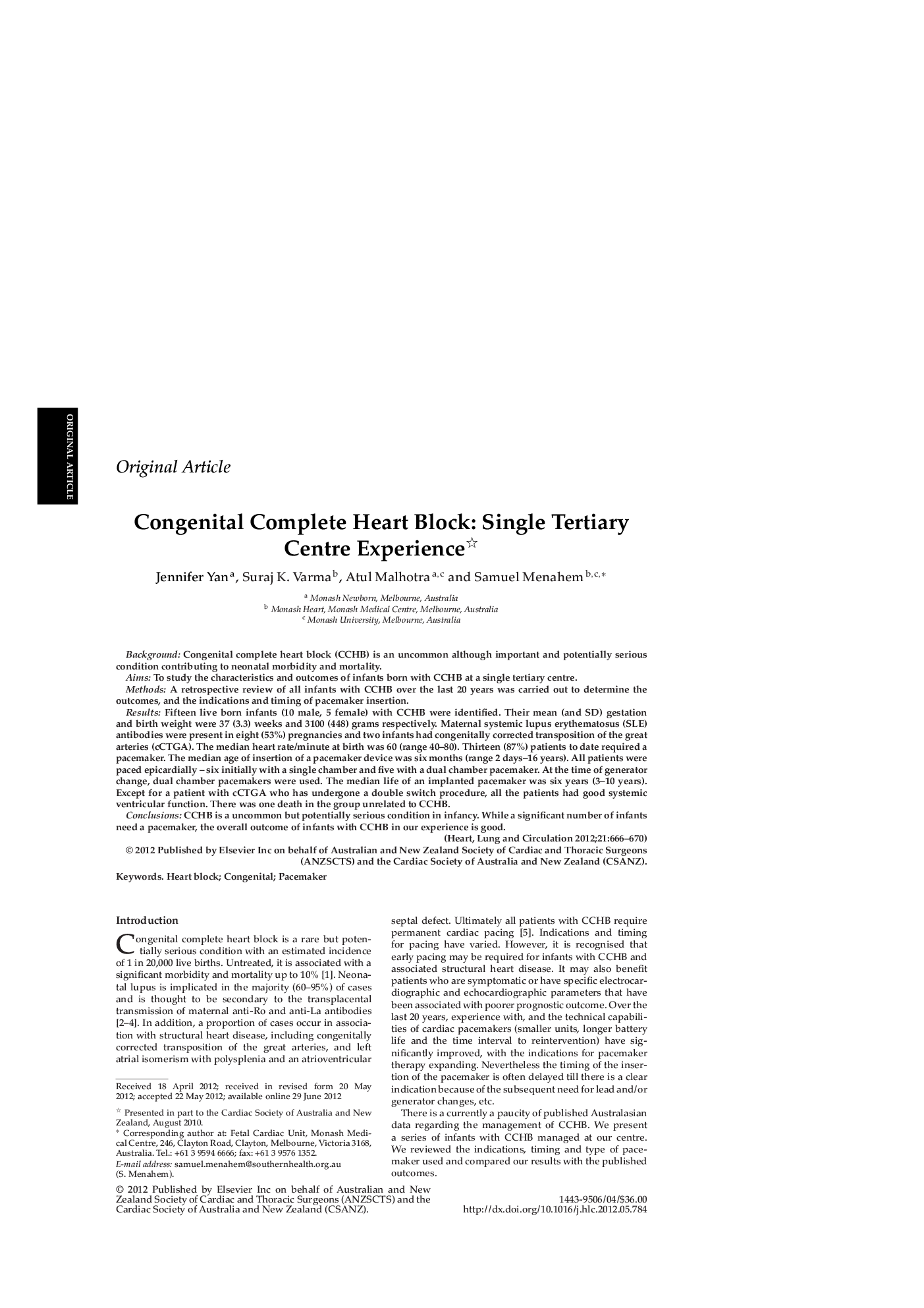| Article ID | Journal | Published Year | Pages | File Type |
|---|---|---|---|---|
| 2919219 | Heart, Lung and Circulation | 2012 | 5 Pages |
BackgroundCongenital complete heart block (CCHB) is an uncommon although important and potentially serious condition contributing to neonatal morbidity and mortality.AimsTo study the characteristics and outcomes of infants born with CCHB at a single tertiary centre.MethodsA retrospective review of all infants with CCHB over the last 20 years was carried out to determine the outcomes, and the indications and timing of pacemaker insertion.ResultsFifteen live born infants (10 male, 5 female) with CCHB were identified. Their mean (and SD) gestation and birth weight were 37 (3.3) weeks and 3100 (448) grams respectively. Maternal systemic lupus erythematosus (SLE) antibodies were present in eight (53%) pregnancies and two infants had congenitally corrected transposition of the great arteries (cCTGA). The median heart rate/minute at birth was 60 (range 40–80). Thirteen (87%) patients to date required a pacemaker. The median age of insertion of a pacemaker device was six months (range 2 days–16 years). All patients were paced epicardially – six initially with a single chamber and five with a dual chamber pacemaker. At the time of generator change, dual chamber pacemakers were used. The median life of an implanted pacemaker was six years (3–10 years). Except for a patient with cCTGA who has undergone a double switch procedure, all the patients had good systemic ventricular function. There was one death in the group unrelated to CCHB.ConclusionsCCHB is a uncommon but potentially serious condition in infancy. While a significant number of infants need a pacemaker, the overall outcome of infants with CCHB in our experience is good.
